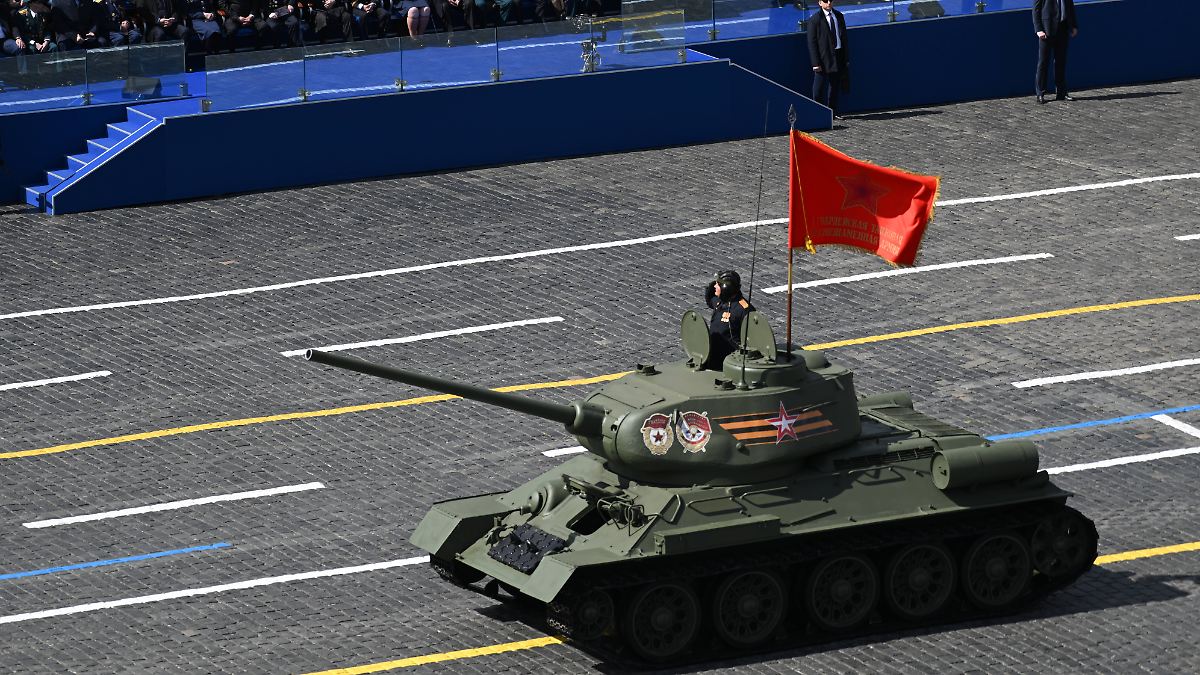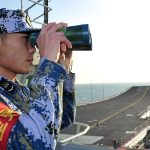Billions for the military
Putin is preparing Russia for years of war economy
This audio version was artificially generated. More info | Send feedback
Russia has been waging war for years and is planning to do so for several more years. Putin has apparently signed a whole list of instructions for the development of the military sector. The number of arms companies is increasing explosively, according to Moscow.
After more than two years of his war of aggression against Ukraine, Kremlin chief Vladimir Putin is pledging his country to expand its war economy. Putin has signed a whole list of instructions for the development of the defense sector in order to produce even more weapons and ammunition, said First Deputy Prime Minister Denis Manturov at the 27th St. Petersburg International Economic Forum (SPIEF). At an event on defense issues, participants stressed that Russia produces weapons and ammunition faster and at a quarter of the cost of the West.
The country is preparing for a decades-long war economy, it was said. The number of companies – including in the private sector – has risen explosively in the past two years of the war. “There are now more than 850 of them,” said Manturov. “Today the military-industrial complex is the locomotive of the economy,” said economist Pyotr Fradkov, chairman of Promsvyazbank and son of Mikhail Fradkov, the former head of government and director of the foreign intelligence service SVR, in view of the large business deals.
Russia relies on growth through arms production
Putin had urged the country to produce the necessary military equipment in a timely manner for his war, as long as the West could not quickly deliver the promised weapons and ammunition to Ukraine due to its own shortages. Thanks in part to the war economy, the Russian leadership is expecting economic growth of around 2.8 percent this year. The Kremlin is spending the equivalent of around 110 billion euros on the defense budget alone this year. An additional 34 billion euros are being spent on national security and security agencies. In total, this amounts to 38.6 percent of all expenditure in the Russian budget or eight percent of gross domestic product. For the first time, Russia is investing more money in the military and security agencies than in social spending.
Representatives and entrepreneurs from dozens of countries, including the USA and many EU countries, China and South America, are taking part in the annual business meeting in St. Petersburg, which has been running since Wednesday and ends this Saturday. Taliban representatives are also present after Moscow announced that it would end their status as a terrorist organization in Russia – and cooperate with the rulers in Afghanistan.
Russia could soon openly supply weapons to US enemies
In view of Western arms deliveries to Ukraine, which also intends to use them to attack Russian territory, Putin threatened an “asymmetric response” at the forum. Moscow could therefore supply Russian weapons to countries that are in conflict with the USA and other NATO members. Putin said in St. Petersburg that Moscow is now considering its response to Western involvement in the conflict in Ukraine.
The 71-year-old will speak this Friday and answer questions about the economic situation in Russia and global politics. He has repeatedly announced that he wants to build a new world order – without US dominance. This year's economic forum is under the motto “Foundations of the multipolar world – the creation of new positions for growth”.
Putin also made it clear that, contrary to the expectations of many, Russia has so far held its own against the Western sanctions. Ukraine's allies, including Germany, had originally aimed to use the sanctions to stop Russia's war machine. Instead, Russian troops have been advancing in eastern Ukraine for weeks. At the forum, Chinese entrepreneurs also reported on concrete examples of how they are helping Russia to complete projects disrupted by the sanctions.
Many Western companies continue to operate in Russia
Western experts confirm that the Russian economy is comparatively robust despite the pressure from the sanctions. The Vienna Institute for International Economic Studies (wiiw) found in an analysis that the majority of Western companies are still present on the Russian market despite the sanctions. Only 9.5 percent or 359 of the foreign companies left the market in the wake of the Russian invasion of Ukraine. However, these major players accounted for around 30 percent of the turnover of foreign companies in Russia.
A further 32.2 percent of companies (1,214) have reduced their business activities, according to the study by the Vienna Institute. Many companies are still undecided. Germany is slightly above average, with eleven percent of companies moving away and around 37.5 percent of total sales, it said. Companies such as Metro, Globus and Ritter Sport are still present in Russia.
Meanwhile, the threat of confiscation or nationalization of their assets by the power apparatus in Moscow – in return for the frozen Russian assets abroad – is causing uncertainty in Western business circles. Putin recently signed a decree that provides for the confiscation of US assets in Russia in response to corresponding steps by Washington.




